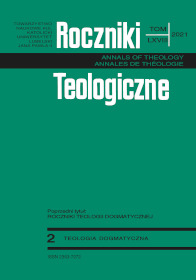An Image of God for the Future of Europe
Abstract
The article intends to explore the possible impact of the image of God originated in Judaism and Christianity on some elements of the configuration of Europe, in an essentially cultural perspective, although with also political effects. It is not intended to assess this impact only within Christian or Jewish communities, that is, in relation to the believers of these religious traditions. It is intended to extend this impact to European society, as such, since the effect of this image of God can also refer to non-believers, especially in the way they interpret their daily lives and their social structures. It is not, therefore, about the recovery of a theocratic system, but about the possibility of effects of the reference to God, as if God did not exist.
References
Bonhoeffer, Dietrich. Wiederstand und Ergebung. München: Kaiser Verlag, 1970.
Braidotti, Rosi. Lo posthumano. Barcelona: Ed. Gedisa, 2015.
Cohen, Hermann. Der Nächste. Berlin: Schocken, 1935.
Derrida, Jacques. Donner la mort. Paris: Galilée, 1999.
Doueihi, Milad. Pour un humanisme numérique. Paris: Editions du Seuil, 2011.
Duque, João Manuel. A transparência do conceito. Estudos para uma metafísica teológica. Lisboa: Ed. Didaskalia, 2010.
Duque, João Manuel. “Do homem secular ao pós-humano”. In Fratello Dio. Invenzioni a più voci. Studi in onore di Pierangelo Sequeri nel suo LXXV cumpleanno, ed. Dario Cornati e Ezio Prato, 341-38. Milano: Glossa, 2020.
Duque, João Manuel. El Dios ocultado. Salamanca: Sígueme, 2017.
Duque, João Manuel. “Para uma teologia do futuro como futuro da teologia”. Carthaginensia 68 (2019): 343-76.
Esposito, Roberto. Immunitas. Protezione e negazione della vita. Torino: Einaudi, 2002.
Francisco, Papa. Carta sobre a Europa a sua Eminência o Cardeal Pietro Parolin. Secretário de Estado, 22.10.2020.
Francisco, Papa. Carta Encíclica Fratelli Tutti sobre a fraternidade e a amizade social. Vaticano: Tipografia Vaticana, 2020.
Jüngel, Eberhard. Gott als Geheimnis der Welt. Tübingen: J. B. Mohr, 1977.
Levinas, Emmanuel. De Dieu qui vient à l’idée. Paris: J. Vrin, 1992.
Levinas, Emmanuel. Du Sacré au Saint. Cinq nouvelles lectures talmudiques. Paris: Ed. de Minuit, 1977.
Lourenço, Eduardo. A Europa desencantada. Lisboa: Gradiva, 2001.
Marion, Jean-Luc. Dieu sans l’être. Paris: PUF, 1982.
Marion, Jean-Luc. L’idole et la distance. Paris: Grasset, 1977.
Metz, Johann Baptist. Memoria passionis. Gesammelte Schriften, Bd. 4. Freiburg i. Br.: Herder, 2017.
Milbank, John. Theology and Social Theory. Oxford: Blackwell, 1990.
Nancy, Jean-Luc. L’Adoration. Déconstruction du Christianisme, 2. Paris: Galilée, 2010.
Nordmann, Sophie. Judaïsme et philosophie. Paris: PUF, 2008.
Patocka, Jan. Essais hérétiques sur la philosophie de l’histoire. Paris: Verdier, 1999.
Ricoeur, Paul. Lectures 1. Paris: Seuil, 1991.
Rosa, Hartmut. Unverfügbarkeit. Wien: Residenz Verlag, 2019.
Rosito, Vincenzo. Postsecolarismo. Passaggi e provocazione del religioso nel mondo contemporaneo. Bologna: EDB, 2017.
Sequeri, Pierangelo. La cruna dell’ego. Uscire dal monoteismo del sé. Milano: Vita e Pensiero, 2017.
Serrano, Gemma. “Théologie et numérique”. Revue Théologique des Bernardins 24 (2018): 137-57.
Splett, Jörg. Denken vor Gott. Philosophie als Wahrheits-Liebe. Frankfurt a. M.: Knecht, 1996.
Taylor, Charles. A Secular Age. Harvard: Harvard University Press, 2007.
Copyright (c) 2021 Roczniki Teologiczne

This work is licensed under a Creative Commons Attribution-NonCommercial-NoDerivatives 4.0 International License.





